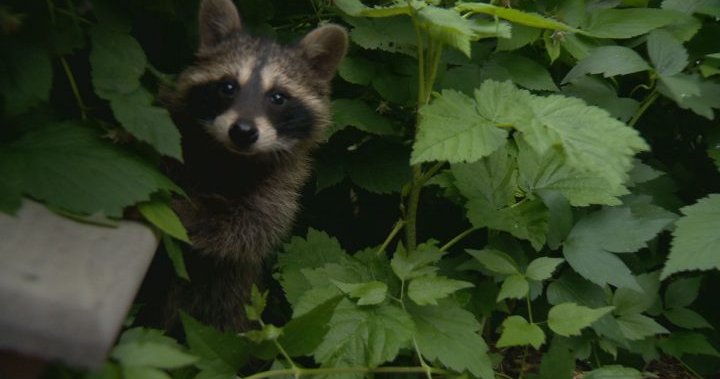
UBC researching brain power of ‘trash pandas,’ wants help from Vancouver residents
Global News
Raccoons will be humanely trapped, microchipped, fed and released so they can solve tests planted in residents' backyards, said UBC researcher Hannah Griebling.
Researchers at the University of British Columbia want help from Vancouver residents as they study the smarts of one of the city’s most notorious critters — the “trash panda.”
The university’s Urban Wildlife Project is in search of backyards where it can set up humane traps, microchip the raccoons under sedation, then place a variety of puzzles in the yard for them to solve.
Researchers will record the raccoons’ responses on camera as they respond — or don’t respond — to five tests designed to assess memory, learning, self-control, and other critical skills.
“They are surprisingly very under-studied, but one thing we do know is that they’re super — what we call behaviourally flexible,” said Hannah Griebling, a doctoral student at UBC’s faculty of forestry.
“What our research is hoping to figure out is, get a better understanding of their behavior and their cognitive ability, or their intelligence, and how that can help us promote coexistence with raccoons and other urban wildlife in the future.”
A primary goal of Griebling and Sarah Benson-Amram, assistant professor in the faculties of science and forestry, is to determine the “domain-general cognition” of raccoons, or their ability to perform well on a test, having already performed well on another.
One test they plan to plant in the yards will assess spatial memory with smart feeders that recognize a raccoon’s microchip. If the raccoon finds the food and returns for more, the feeder will offer a reward.
A skill called “reversal learning” can then be tested through a change in which a smart feeder rewards the raccoon and observations of how quickly the animal learns to go to the new feeder.
